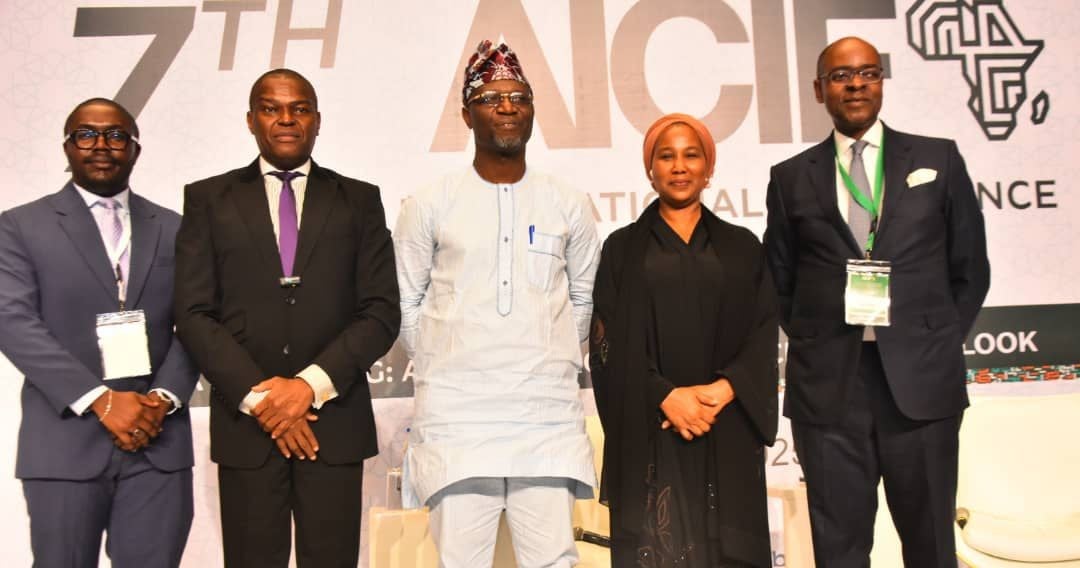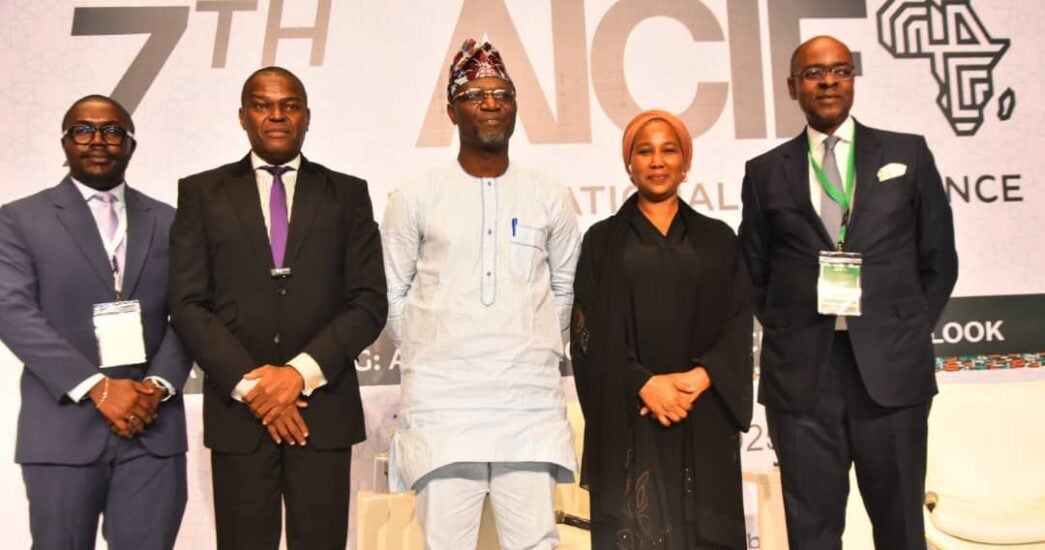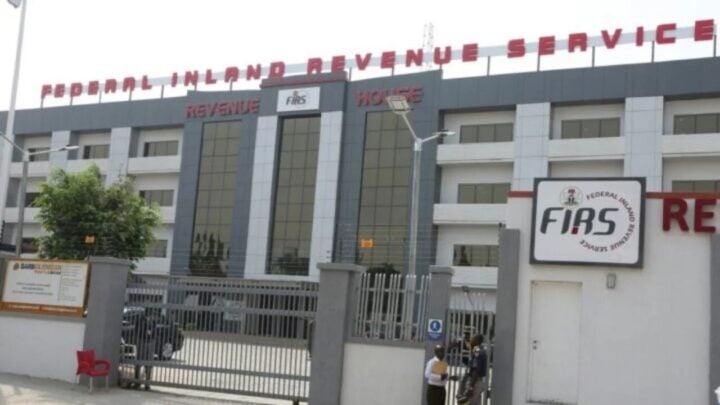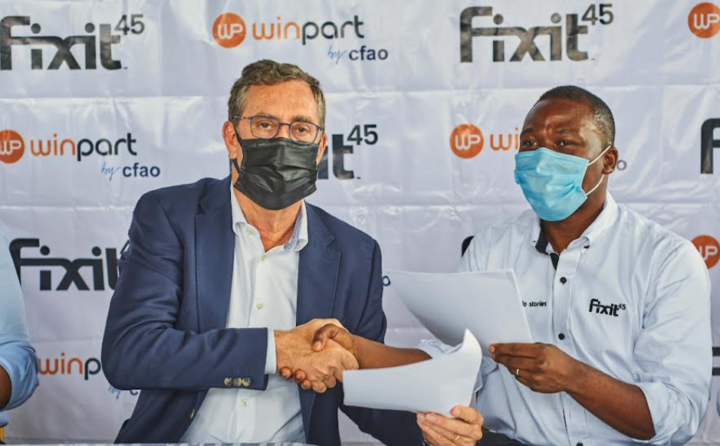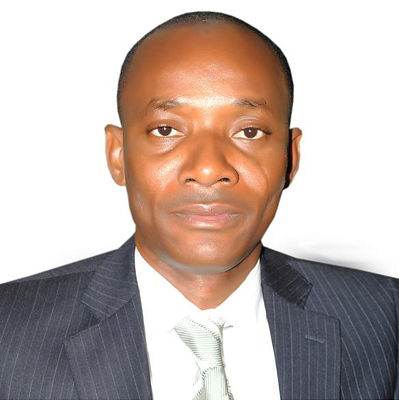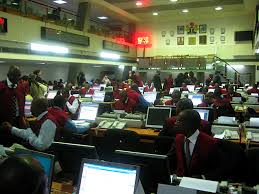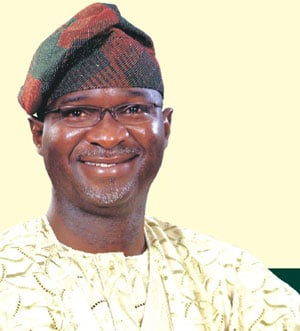L-R: Oluwafunbi Akpata, team lead regulatory development and approvals at NGX Regulation Ltd; Babatunde Sonnie Ayere, CEO DLM Capital Group; Emomotimi Agama, director-general of the SEC; Ummahani Ahmad Amin, AICIF conference chair and managing partner at Metropolitan Law Firm; and Bolaji Balogun, CEO ChapelHill Denham, at 7th African International Conference on Islamic Finance in Lagos on November 5, 2025
The Securities and Exchange Commission (SEC) has called on African countries to adopt Islamic financing as a catalyst for sustainable and inclusive economic growth across the continent.
Emomotimi Agama, director-general of SEC, disclosed this on Wednesday in Lagos at the 7th African International Conference on Islamic Finance (AICIF).
The two-day event, which began on November 4, was themed ‘Africa Emerging: A Prosperous and Inclusive Outlook’.
Agama said the theme reflected the responsibility of African policymakers to make sure economic growth leads to tangible improvements in the lives of their citizens.
Advertisement
He said a truly prosperous Africa directs investments toward vital infrastructure such as roads, energy facilities, and digital systems that drive economic activity.
The SEC chief further noted that an inclusive Africa guarantees equal access to opportunities for everyone, from rural farmers to urban tech entrepreneurs.
Agama was of the view that Islamic finance, built on the principles of asset-backing, risk-sharing, and ethical investment, aligns with Africa’s pursuit of sustainable development.
Advertisement
Citing the 2025 Islamic Financial Services Industry Stability Report, he said global Islamic finance assets hit $3.88 trillion in 2024.
He noted that Islamic capital market products, such as Sukuk, Islamic mutual funds, and Sharia-compliant equities, accounted for approximately 30 percent of total assets.
According to Agama, the sector’s growth outlook remains strong, with global assets projected by the Islamic Corporation for the Development of the Private Sector (ICD) to hit $9.7 trillion by 2029.
He highlighted significant milestones, including South Africa’s oversubscribed $500 million sovereign Sukuk in 2014 and its ZAR 20.4 billion issuance in 2023.
Advertisement
He also mentioned Egypt’s $1.5 billion and $1 billion Sukuk issuances, Kenya’s debut Sukuk, Tanzania’s new Sukuk regulations, and Senegal’s ongoing offerings.
The SEC chief said Nigeria has become a leader in the non-interest capital market through its sovereign Sukuk programme.
He disclosed that the scheme generated over N1.4 trillion since 2017, which was used to construct and rehabilitate 124 key roads spanning 5,820 kilometres, adding that the national assembly’s approval of a $500 million international Sukuk signified renewed investor confidence in Nigeria’s economy.
Agama reaffirmed the SEC’s commitment to building a fair and inclusive capital market under the Investments and Securities Act (ISA) 2025.
Advertisement
‘AFRICA LAGS IN LEVERAGING ISLAMIC FINANCING’
He said the Act supports innovation in the non-interest segment, which is now valued at over N1.6 trillion.
Advertisement
He added that insights from the conference on infrastructure, green finance, agriculture, and financial technology (fintech) would shape Nigeria’s capital market masterplan 2025-2035.
Previously, Ummahani Ahmad Amin, the conference chair, said Africa still lags behind in leveraging Islamic finance to close its $130–$170 billion annual infrastructure gap.
Advertisement
She identified weak market systems, low liquidity, and limited investor awareness as major challenges hindering growth.
Amin urged policymakers to tackle the aforementioned barriers so that Sukuk and similar instruments can drive stability and development across Africa.
Advertisement
